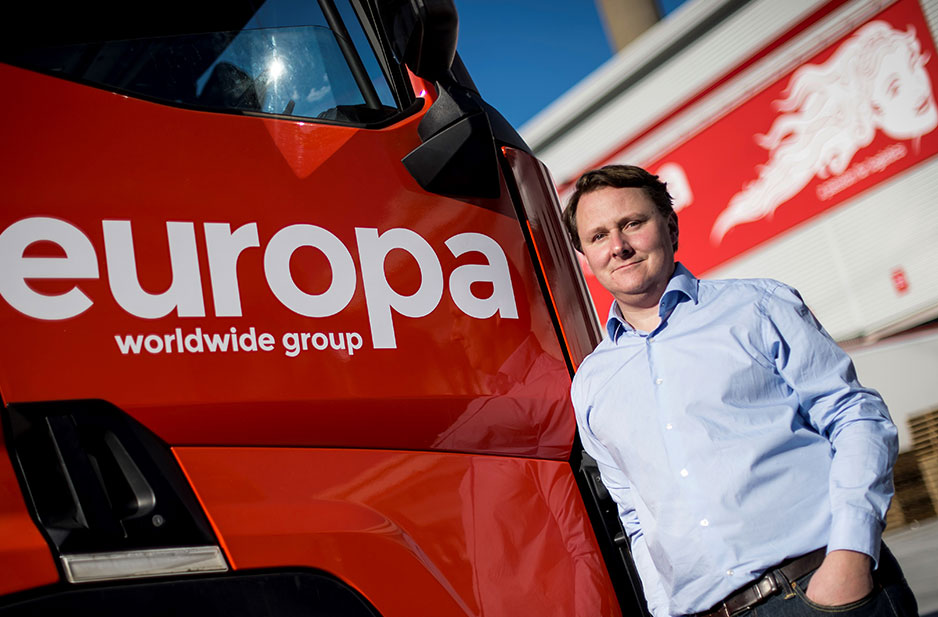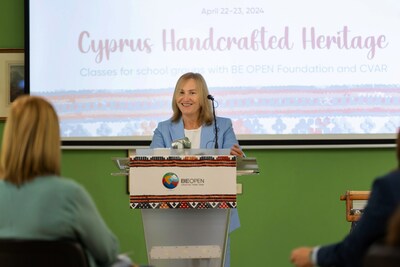Europa Turnover Passes £200m
Ambitious independent logistics operator Europa Worldwide Group which recently opened a state of the art site in Corby (Northants) has revealed its results for year-ending 31st December 2019, showing another 16.5% growth with a record turnover of £205million.
Europa has a huge presence in Minworth, at Prologis Park which is home to all four divisions of the business, Europa Sea and Europa Showfreight as well Europa Road’s regional team and a 16,536m2 Europa Warehouse.
These figures show that Europa has succeeded in achieving the target it set 12 months ago to exceed the £200million mark.
Europa Worldwide Group has six divisions – Europa Road, Europa Air & Sea, Europa Showfreight, Europa Warehouse, Europa Contact Centre and Continental Cargo Carriers and has featured in The Sunday Times Top Track 250 for two years running.
In 2019 Europa’s turnover increased from £176million to £205million – a £29million increase – and net profit before tax increased to £6million from £5.2million in 2018.
The business, which has just opened a £60million future proofed 715,000 sq ft state-of-the-art, 3pl logistics facility in Corby (Northants) has also reported an increase in its net assets, which now stand at £12.9million compared to £8.4m in the preceding financial year.
2019 saw a year of huge investment by Europa – including the acquisition of part of the assets of Menzies at the start of the year. This included Menzies’ warehouse based in Rushden, Northamptonshire and its PCI compliant contact centre based in Ashford, Kent, from its parent company, Menzies Distribution, to strengthen the Europa Warehouse division.
Other investment during the period included £250,000 in refitting its Birmingham site as part of a company-wide estate improvement. The business also invested hugely in Brexit preparations, including over £2m in its Dartford transit warehouse to increase racking capacity by 75 per cent.
Europa has continue to invest in its systems including further developments in the bespoke IT system “Leonardo” which continues to expand and will eventually provide a fully harmonised system for every aspect of the business’s operations. Utilising the latest technologies, this sophisticated system provides in-house control to improve responsiveness, efficiency, productivity, and scalability. Europa has already launched 10 different Leonardo modules deployed across the operation from road freight to finance.
Finance Director at Europa Worldwide Group Adam McBride said: “The 2019 results are our best yet and show a really positive, solid year of growth for our business across all divisions. This has enabled us to continue investing throughout the business and across teams, which will allow us to continue this fantastic growth and meet any challenges head on.
“2019 saw us add two more sites to the group as well as increase the headcount to support the progression of the business, so we are happy with the figures.
Managing Director at Europa Worldwide Group Andrew Baxter added he was pleased with the figures for last year, but his focus is on driving the business successfully through the impact of Covid-19.
Andrew comments “The growth in 2019 was a result of the great team we have as well as our continued dedication to providing the best, most efficient services for our customers. This enabled us to win new business across the divisions and I am very proud of what we have achieved.”
Europa Worldwide Group has continued to operate all of its services, across all divisions as normal throughout the pandemic with staff, where possible, working remotely. The company refused to add Covid-19 surcharges to it services or reduce any of its operations.
He said: “From March onwards we like every other business were hit by the effects of the coronavirus pandemic but I believe we have weathered the worst of it pretty much intact, as well as opening our new Corby site on schedule which is a massive success. Our ongoing investment in technology has certainly paid dividends this year.
“I am really happy with the results from 2019. We anticipate that this year will be a different picture with limited or modest growth due to the pandemic, but we are highly optimistic for 2021 and march on towards our target of achieving £400million turnover.”



























